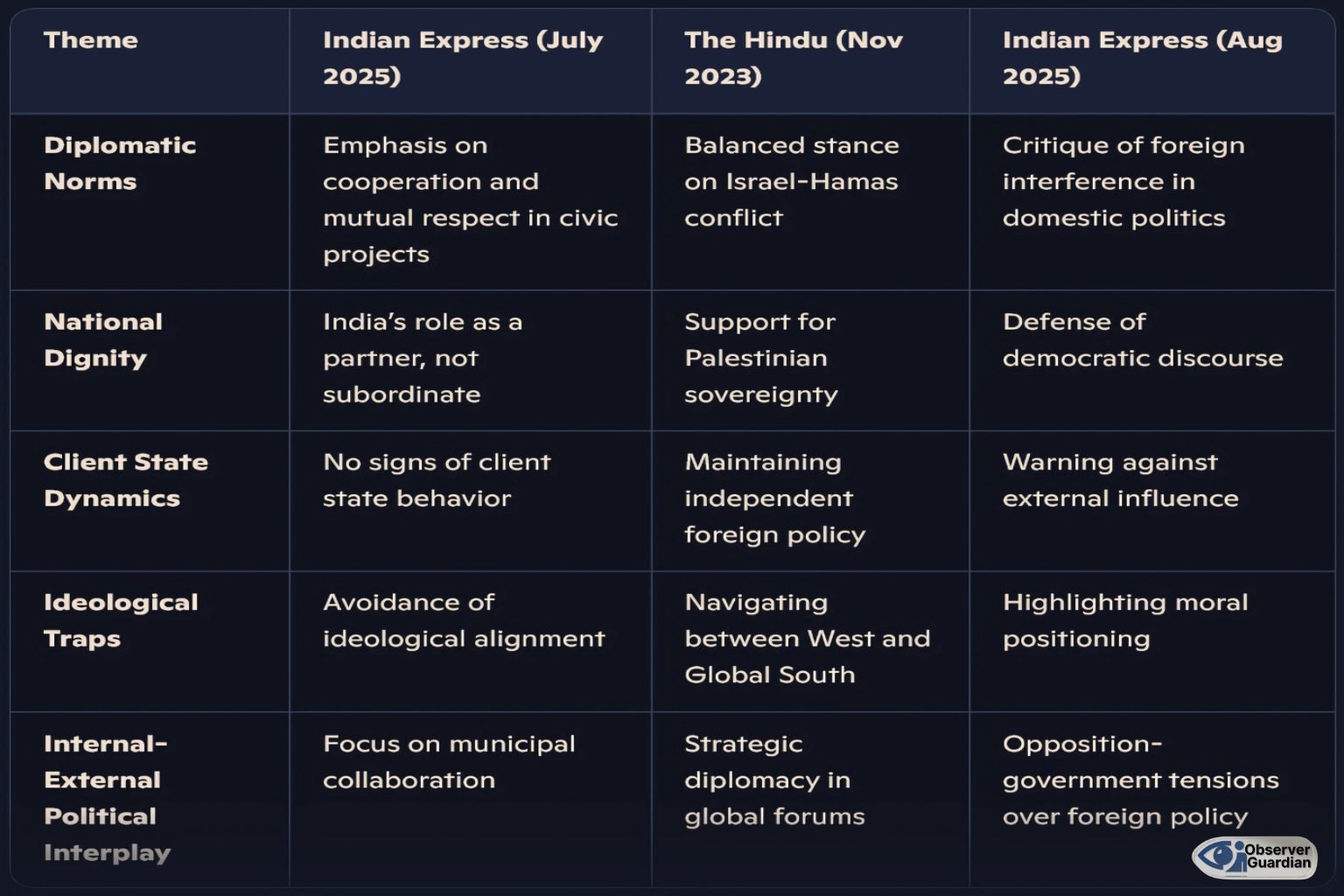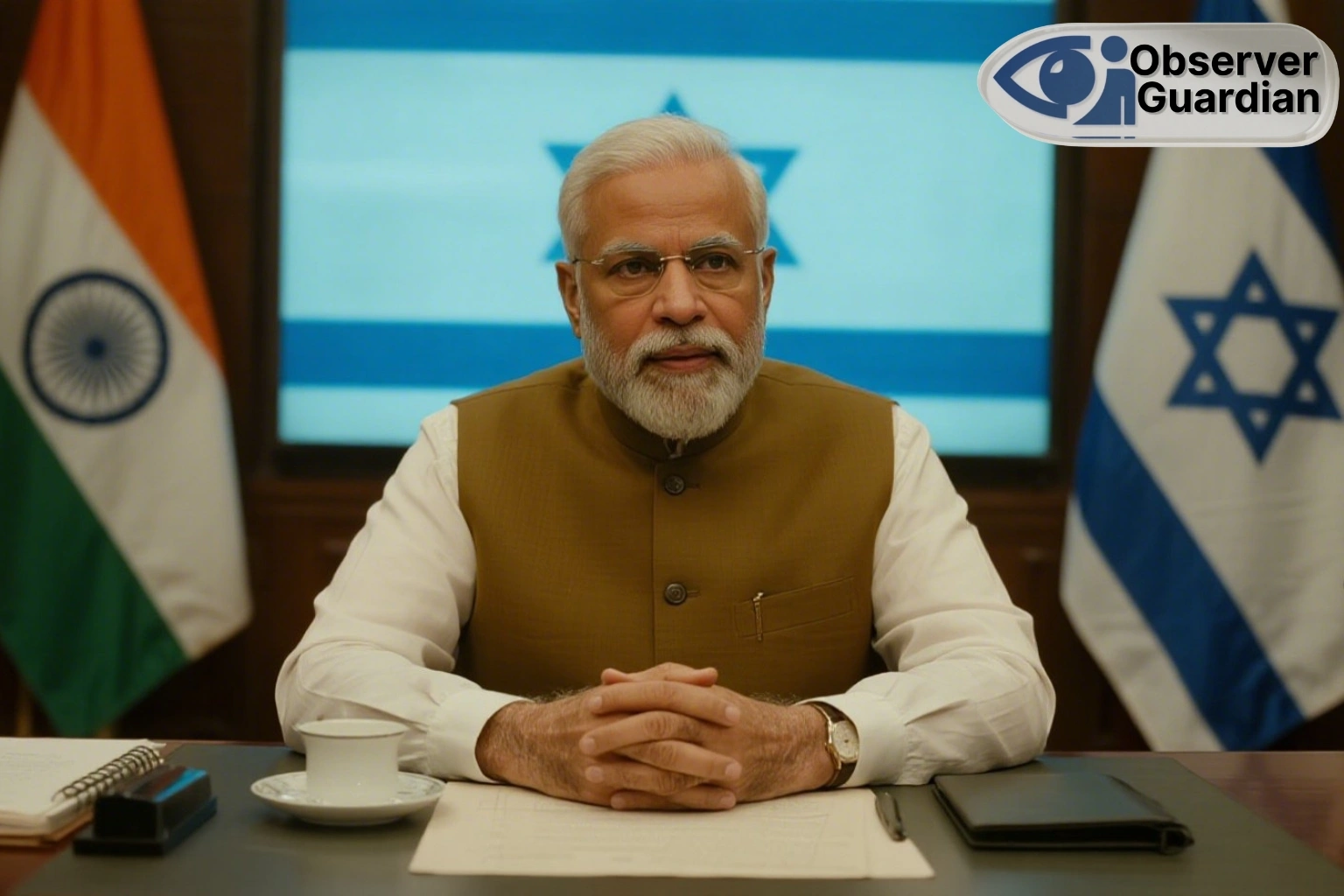Priyanka Gandhi came out so boldly and unequivocal on August 8, when she mentioned Israeli military action in Gaza as genocide and openly supported the human rights discourse that emerged globally. This was a straight manifestation of moral courage and an uncompromising stand on humanitarian principles by her. But instead of responding on a diplomatic basis, the Israeli ambassador to India, Reuven Azar, suddenly fired off a unique and unheard of public assault declaring her a victim of shameful deception. This was a non secretive diplomatic communication. In fact, it was a humiliating action brought about by a foreign diplomat on Indian territory. Moreover, it is an action deemed to be against the customary norms of diplomacy both in connotation and in content.
Assault on National Dignity, Quiet Government
The ambassador’s provocative statement against a prominent opposition politician revealed a bitter truth. The Modi administration seems unable to tolerate political disagreement within the country. It also fails to keep foreign envoys from offending Indian politicians. Generally, the diplomatic convention requires the diplomat to be reserved and discreet particularly when making comments regarding domestic politics. Azar not only flouted these rules, but also blemished the sovereignty of India, setting an interesting trend in international relations.

India and Client State Shift
In a bid to pursue its foreign relation strategies, Narendra Modi has increasingly resorted to the aspects of balanced sovereignty to the frailties of a client state.
The ambassador’s brashness in publicly humiliating a senior political leader reflects a common strategy. National pride is often sacrificed for promises of strategic benefits and arms sales.
It is part of a more transaction based approach to Indian diplomacy whereby coalitions and materialism occasionally outweigh principled positions or defending domestic political honor.
Wearing Away of Diplomatic Tradition
Diplomats around the world never openly attack the leaders of the countries they visit.
The remarks of Reuven Azar brought an end to this tradition and set a very bad precedent for diplomatic intervention in Indian internal affairs. The Congress, Shiv Sena, and other opposition parties came down heavily on the statements of the ambassador, stating that the moral and diplomatic failure of the government must be rectified at once.
However, the tame reaction of the Modi government demonstrated the flaws in Indian sovereignty and the uncertainty of its ability to uphold its national and political identity on the global arena.
Strategic and Ideological Trap with Israel
Under Modi, the proximity between India and Israel has taken on unprecedented shape, and India has abandoned its traditional passive policy on the Israel Palestine conflict. This ideological convergence, based on Hindu nationalism and a kind of ethnoreligious unity with Zionism, has been converted into domestic politics of Kashmir resembling Israeli settlers’ strategies. Furthermore, deeper ties have also been facilitated by strategic and defense based accords in addition to massive corporate alliances. Therefore, there is more of a transactional pragmatism than principled engagement in Indian foreign policy, which is open to foreign interference undermining moral and diplomatic positions.

Formation of a Decline of Diplomatic Balance and Moral Credibility
New Delhi is failing in its regional and moral credibility as there is continuous tilt toward Israel. The government’s refusal to join the Shanghai Cooperation Organization’s condemnation of Israeli attacks on Iran reveals a selective and transactional approach. This approach sidelines regional sensitivity and concerns for human rights. Not only will such a strategy deteriorate the image of India on the international level, but it will also send a message to the international community that national values are not of primary importance to India. Thus, giving international diplomats a free hand to interfere in internal discussions without the risk of potential reprisals.
Assertive Tendencies and Promotion of Outside Interference
Internally, the Modi government shows an authoritarian streak. This includes intimidating political rivals and acting against minorities. It also suppresses the right to free speech using state machinery. In such a situation, foreign diplomats may seem to have a license to intervene. The internal repression, coupled with the external humiliation that comes from a government unable to exert its will domestically, makes it susceptible to disrespect abroad. Likewise, the brazenness of a foreign diplomat criticizing Indian leaders builds the perception of domestic weakness. This combination of domestic despotism and external indifference is especially frightening to the long term stability of the nation both democratically and as a sovereign state.
The open statements of the ambassador of Israel not only signify a violation of diplomatic protocols but are also a consequence of the loss of diplomatic skills by the Modi administration. This impairs state sovereignty and promotes autocratic approaches to the domestic agenda. The episode serves as a reminder to India of its weakness as a diplomatic power, its clientelist relations, and the perils of mixing strategic bargaining with national sovereignty. Upholding national honor, preserving balanced foreign relations, and democratic values are not only necessary to strengthen the global position of India but also to safeguard the values that protect its sovereignty in the national setting.
Disclaimer: The views and opinions expressed in this article are exclusively those of the author and do not reflect the official stance, policies, or perspectives of the Platform.







